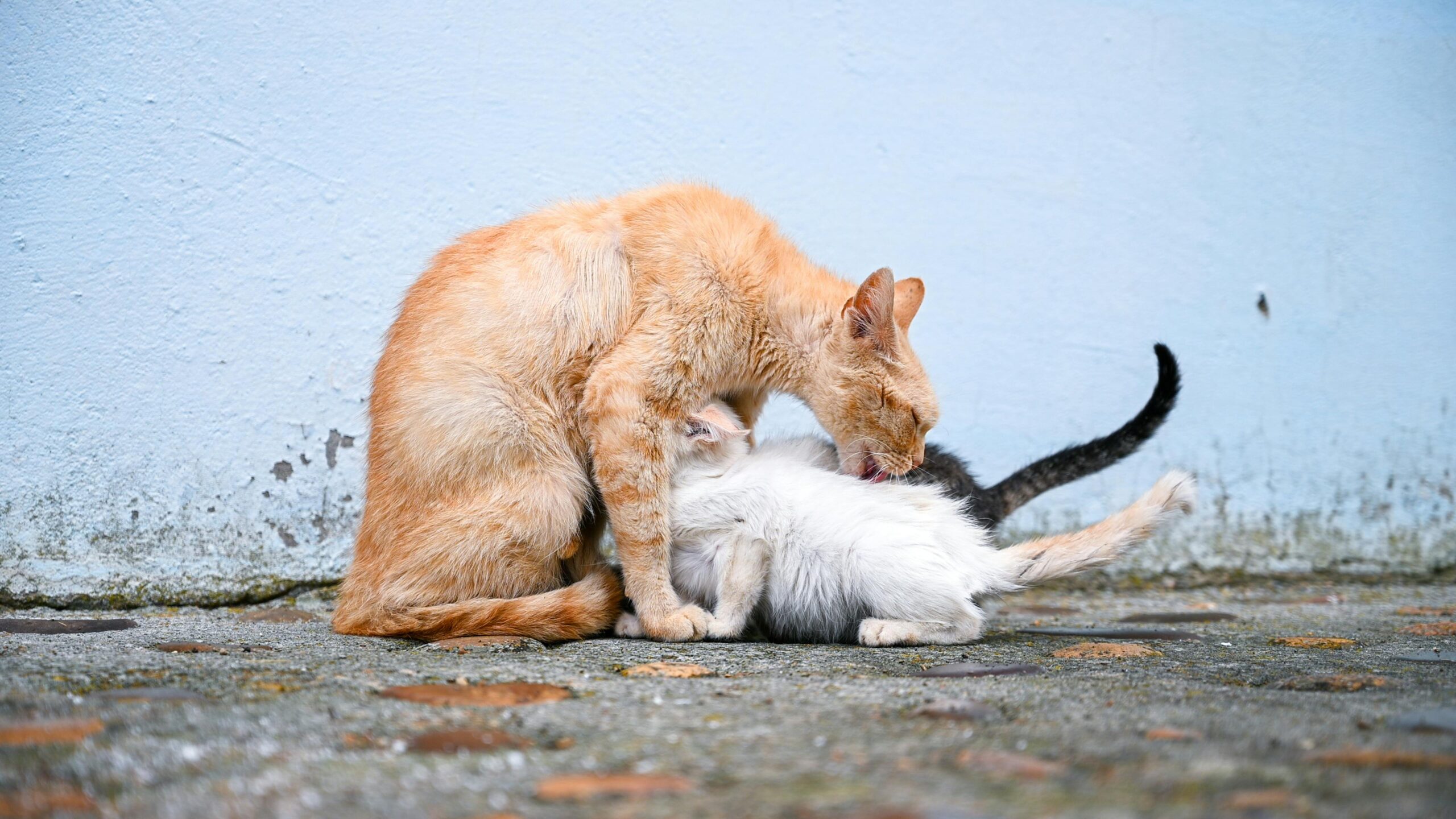The early signs your cat is accepting the new kitten after much rejection and possible confrontational aggression from your resident cat can go unnoticed if not carefully observed because of the unique nature of domesticated cats towards their kind.
Cats are highly territorial and cautious animals that can easily tell little differences in any change to their personal space.
This behaviour helps them protect their territory from unfamiliar faces, including the young ones of their kind.
Introducing a new kitten into your household will most likely be met with strong opposition from your adult cat due to territorial instincts, changes in routine for the resident cat, jealousy, insecurity, and so on.
Your cat will likely growl, be fond of hissing, and be unreceptive towards your newly introduced kitten.
In some worst-case scenarios, your cat might aggressively confront your new kitten if they are hurriedly and not cautiously introduced into the household.
Introducing a new feline friend to your cat is long and gradual.
Below are the signs to look out for after a while to tell if your cat is accepting the new kitten.
Curiosity without Confrontation:
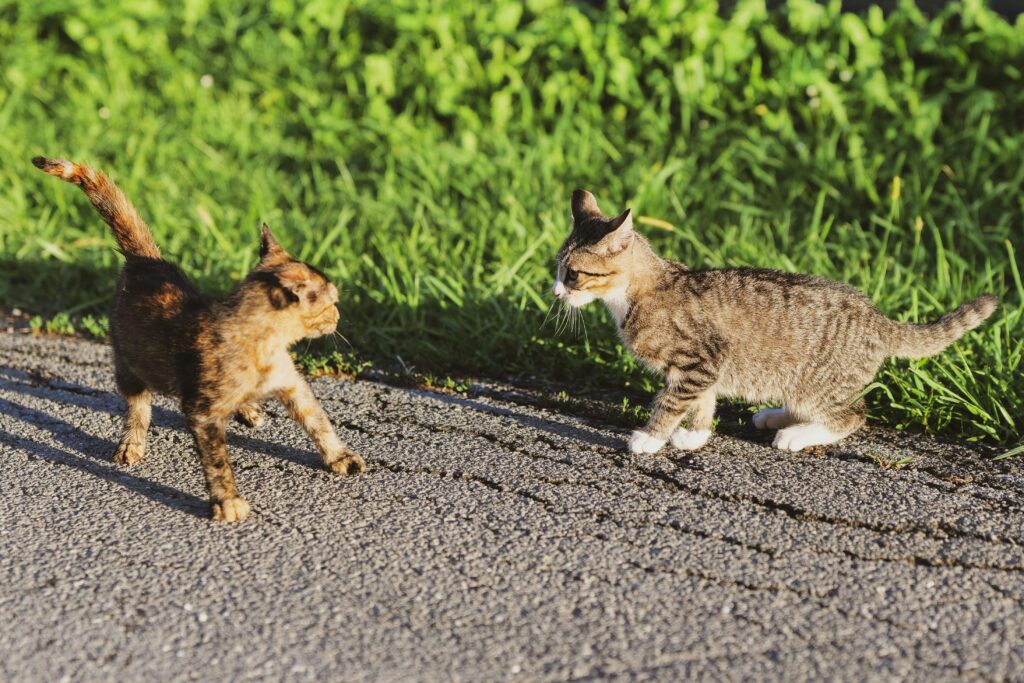
The first sign your cat shows that indicates acceptance of the new kitten is curiosity without any form of aggression, fear, or jealousy.
Your resident cat might likely show great interest in your little kitten by observing what your new kitten does, how it is done, and why.
Your cat will likely take long stares at your new kitten when sleeping, eating, playing, and eliminating body waste.
This interest is genuine, and you should not be worried about any harm to your new kitten.
Relaxed Body Language:
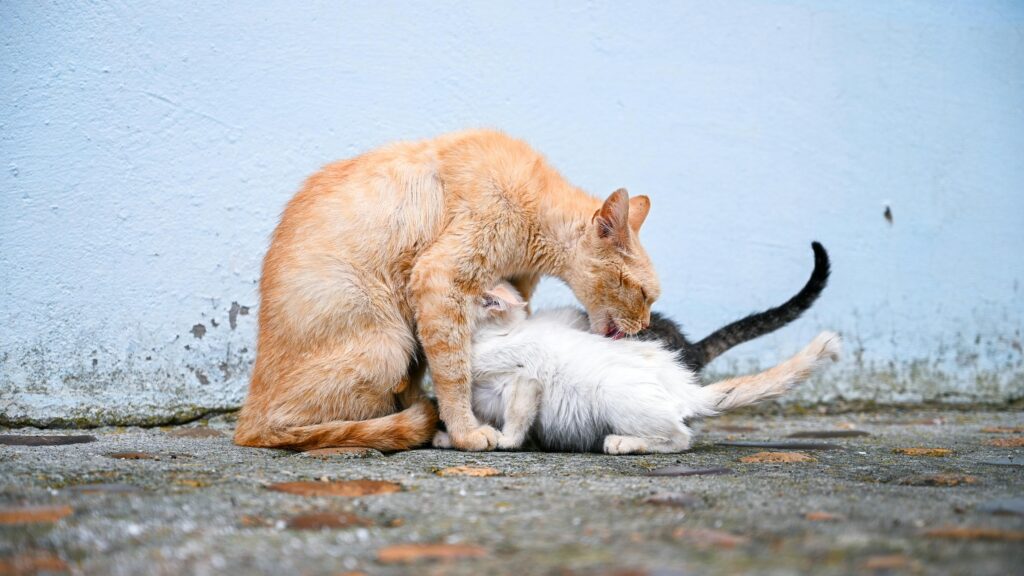
Initially, when a new kitten is newly introduced in the household, the resident cat will exhibit certain behaviours such as flattened ear, aching of back, pupped-off fur, swatting or batting, fixated gaze, raised hackles, stiff or rigid body, ocalization, and baring teeth.
These signs indicate the unacceptance of the new kittens when newly introduced. But when their tail is more relaxed, or their ears are relaxed in a forward direction with their body more comfortable while they slowly blink towards the cat, it indicates acceptance.
These signs are easy to notice and should be carefully examined before you allow your new kitten to socialise outside their cage unmonitored.
Playful Behaviour:
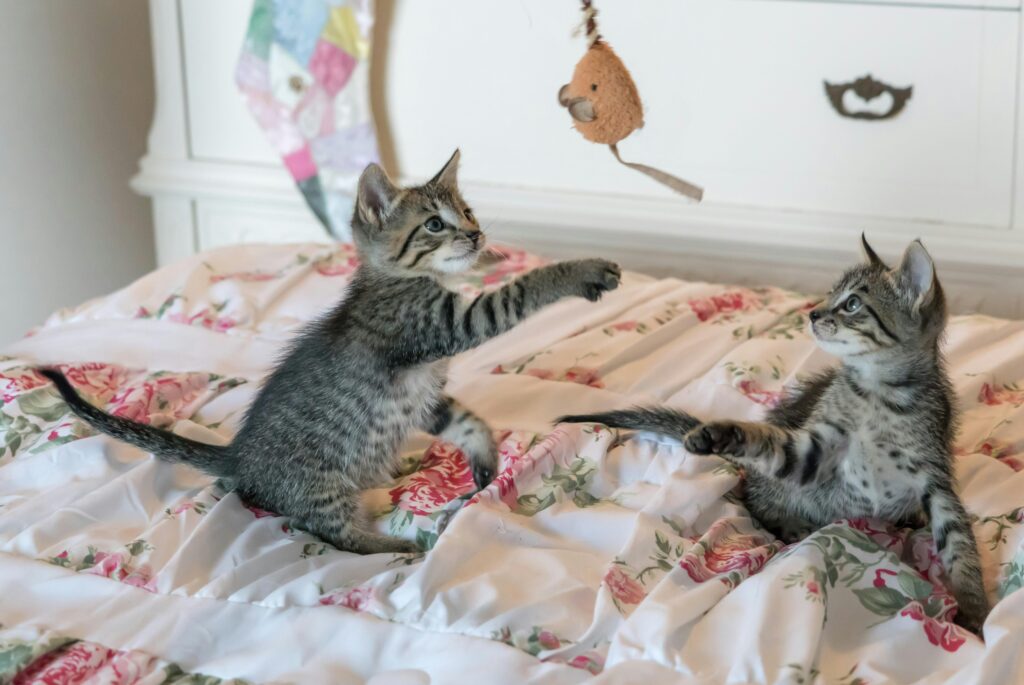
Newly introduced kittens are playful and will most probably approach the resident cat with the intention of socialising.
Your cat, on the other hand, will likely aggressively bat at the kitten, which makes the kitten startled and frightened.
This scenario will create a tense atmosphere between both cats, and the moment you notice your adult cat starts engaging in gentle play with your new kitten after carefully observing the kitten, it is a great sign of acceptance.
The playful act of your adult cat could be mistaken for aggression or too rough of play with a kitten.
At this point, you should observe the kitten to know about their response or reaction. If comfortable, you should allow and encourage your cat.
This will present them with the opportunity to sniff each other closely and get used to themselves.
Sharing Space & Personal Items:
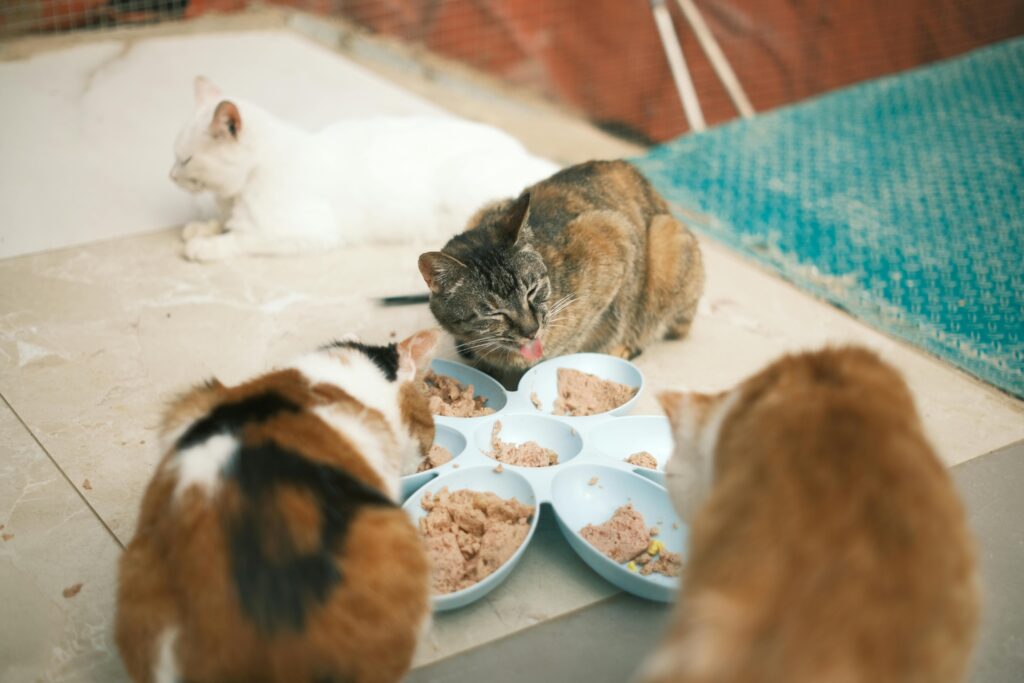
Your new cats will start playing the older one role by allowing the new kitten to share the same space and personal items, such as toys.
This can lead to more socialisation, bonding, and companionship between the two when they share the same space and personal items without any discomfort, displeasure, or stress.
Cats are solitary animals, and for them to share space or items with other animals, including theirs, is a sign your cat is accepting the new kitten.
Grooming:
Cats are self-grooming animals. Their self-grooming dexterity not only helps to keep themselves clean but also helps to bond positively with others of their kind.
If you notice your cat grooming or allow the kitten to groom them, then be sure of a great bond between the two.
A cat will not easily allow other cats to groom them when they can. Grooming is a sign of affection; it also reduces stress and shows they are comfortable with each other.
While they are grooming each other, they will likely lick or gently bite themselves and also use their their claws to scratch on the same surface.
Sharing Food And Other Basic Items:
sharing of food bowls, litter, resting space, cat trays, etc are not quite common among cats because of territorial instinct, jealousy, insecurity, etc.
If your adult cat freely shares the above-listed items with your new kitten, then you have a loving and peaceful feline family.
But as a general rule of thumb, each cat should have its own food bowl, litter, cat tray, and an extra one to avoid unnecessary conflict and possible aggression or confrontation.
If you do not follow this rule of thumb, there’s a high chance your cat might stop using the litter. To know more, read here
How long does it take for a cat to accept a new kitten?
Most times, it might take a few weeks, but in extreme cases, it can take a month or never.
The duration depends on the individual cats involved and how best you can manage the situtaion.
It is best advised to take things slowly and be patient.
Do cats get jealous when you pet another cat?
You definitely have a lot of question bothering how your cat will react to the kitten.
Well, it is most likely the resident cat will be jealous when you spend time with the new kitten.
To avoid or minimize this, do not reduce the time you spend with your cat while taking care of your new kitten.
Always make sure your cat is not neglected.
How do I know if my cat doesn’t like my new kitten?
Certain behaviours, such as jealousy, hissing, trying to make him or herself look bigger so as to intimidate the new kitten, or in some worst scenarios, aggression and confrontations,.
It is best advised to always observe their interactions, especially from a distance.
Conclusion:
It is natural for an adult resident cat not to be receptive to a newly introduced kitten.Adult resident cats are very territorial in their space and they may exhibit certain behaviors such as swatting, and hissing, towards the new kitten.
To have a harmonious pet relationship, it is best advised to slowly and carefully introduce your new kitten so as not to cause a strained relationship from the start that might never be amended.
The new kitten should be kept in a cage or a demarcated environment and every item needed, such as litter, food bowls, trays, etc should be provided separately from the resident cat.
Start the process slowly and take note of all the signs stated above.

